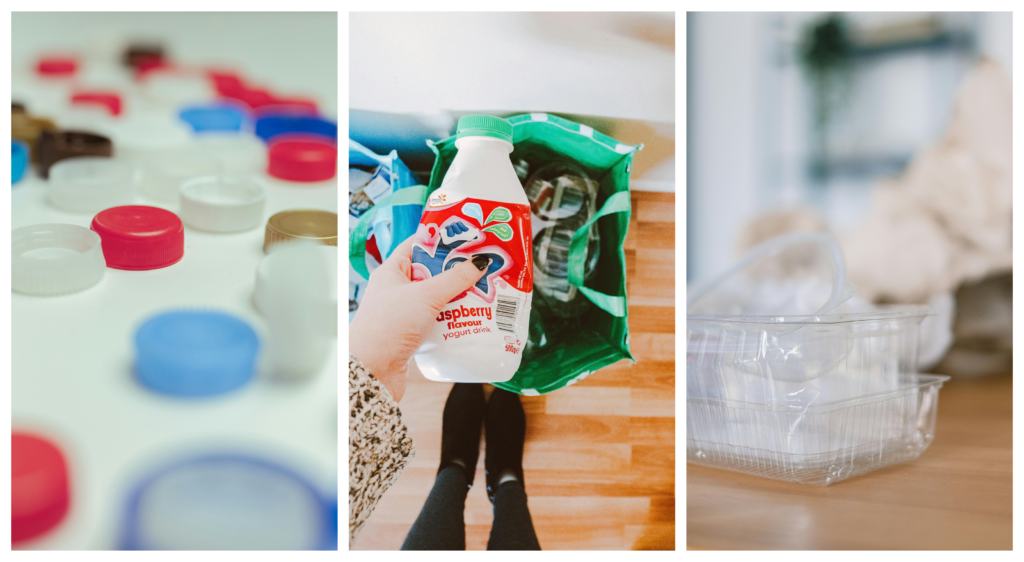Biodegradable, compostable, recycled and recyclable plastic
The transition towards sustainability in the plastics industry is in full swing, driven by growing environmental awareness. At Murgiplast, we understand that nurseries and grow shops are looking for eco-friendly solutions that contribute to reducing waste, without compromising the functionality of their products. Therefore, we focus on exploring various alternatives: biodegradable, compostable, recycled and recyclable plastics. Below, we analyze how these solutions can transform the pots and agricultural boxes industry.
Biodegradable Plastic: Nature in Controlled Decomposition
Biodegradable plastic is a material designed to break down faster than conventional plastics, through the action of microorganisms under the right temperature and humidity conditions. It is often made from renewable resources such as corn starch or sugar cane, making it a more environmentally friendly option.
Benefits in agriculture
This type of plastic is ideal for products such as flower pots and agricultural tools that can be integrated into the soil once they have fulfilled their function, without generating polluting waste. In addition, it facilitates handling in nurseries and crops as it can be composted in certain cases, helping to reduce agricultural waste.
Pros:
- Lower environmental impact compared to conventional plastics.
- Promotes soil regeneration without leaving toxic residues.
Cons:
- Its degradation may require specific conditions, not always present in nature.
Compostable Plastic: From Waste to Resources
Compostable plastic is a particular type of biodegradable plastic that decomposes not only through the action of microorganisms, but also under composting conditions, transforming into nutrient-rich organic fertilizer. Compostable plastics must comply with strict regulations, such as EN 13432 or ASTM D6400 certifications, which guarantee that they become compost without leaving microplastics.
What makes it different from biodegradable plastic?
While both can decompose naturally, compostable plastic has one key advantage: when it decomposes, it contributes to the natural soil cycle, improving its fertility. This type of plastic is ideal for pots, trays and other products that, after use, can be directly composted, optimizing the life cycle of materials in agricultural environments.
Pros:
- It becomes compost, helping to improve soil quality.
- Reduce the amount of waste sent to landfills or incineration.
Cons:
- For optimal composting, industrial facilities are often required.
- It usually has a higher production cost.
Recycled Plastic: A New Life Cycle for Materials
Recycled plastic is plastic that has been processed from collected plastic waste, treated and transformed into new products. This therefore reduces the demand for virgin plastics and the accumulation of waste in landfills and oceans.
Applications and benefits
Using recycled plastic in the manufacture of plant pots and agricultural boxes offers a viable solution for businesses and consumers committed to reducing their environmental footprint. In addition, products made from recycled plastic are durable, economical and help close the life cycle of the material.
Pros:
- Help reduce plastic waste in the environment.
- It requires less energy than the production of new plastics.
- Contributes to a circular economy.
Cons:
- It may have inferior physical properties to virgin plastic.
- The quality and viability of recycling depends on the proper separation of waste.
Recyclable Plastic: Potential for a Continuous Cycle
Recyclable plastic is plastic that can be collected and reprocessed to make new products. However, the key is that not all recyclable plastic is actually recycled, as this depends on the infrastructure and proper waste management.
Importance of recyclability
For a recyclable product to truly contribute to sustainability, it must be properly integrated into the recycling system. At Murgiplast, we ensure that our agricultural pots and boxes are 100% recyclable, giving consumers the option to dispose of them responsibly at the end of their useful life.
Pros:
- Promotes the reduction of the amount of plastic waste.
- Maintains the value of materials in the production chain.
Cons:
- Requires effective recycling infrastructure.
- Not all plastics are equally easy to recycle.
Murgiplast's Role in Sustainable Innovation
At Murgiplast, we understand that the key to a greener future is the combination of multiple sustainable solutions. Our commitment to sustainability is reflected in our constant search to incorporate biodegradable, compostable, recycled and recyclable plastic material into our product line. The pots and agricultural boxes we manufacture not only seek to meet the practical needs of our customers, but also contribute to the well-being of the environment.
Commitment to research
We are constantly innovating to ensure that our products have the lowest possible environmental impact, optimising our production processes to minimise our carbon footprint. We also offer advice to our customers on the responsible use and disposal of products, fostering a culture of sustainability throughout the agricultural chain.
Conclusion: Towards a Future with Smart Plastics
Each type of plastic – biodegradable, compostable, recycled and recyclable – offers different advantages and challenges in the search for sustainable solutions. At Murgiplast, we believe that the future lies in the integration of all these alternatives. Compostable and biodegradable plastics are ideal for applications that require natural decomposition, while recycled and recyclable plastics extend the life cycle of the material, helping to avoid the accumulation of waste.
For nurseries and grow shops, the adoption of these smart plastics not only represents a step towards sustainability, but a competitive advantage by offering products that align with the demands of today's consumers. At Murgiplast, we are proud to be part of this change, leading the way towards a greener agricultural future.

